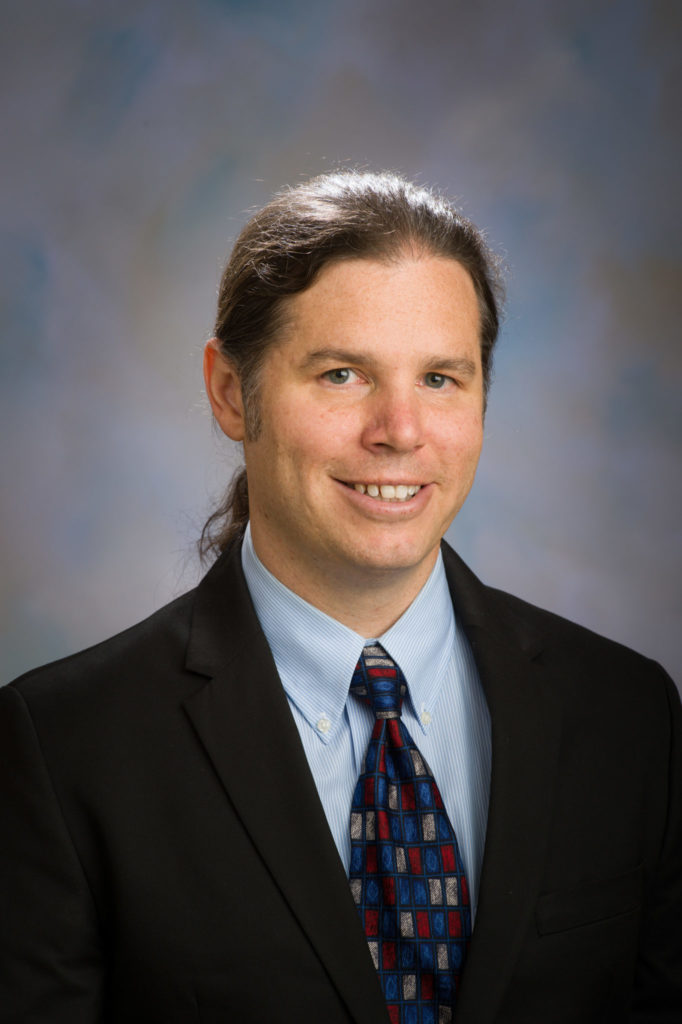
Poets usually turn to the stars when they need a metaphor for unfathomably large numbers. But the building blocks of life and inner workings of the cell might provide a more apt inspiration: There are more possible combinatorial permutations of even moderately sized proteins than there are stars in the entire universe.
The vast complexity of cellular biology presents scientists with a daunting challenge, and modern techniques have emerged to tackle that challenge. This summer, undergraduate researchers are getting a head start with these cutting-edge methods, through Chemical and Biological Engineering associate professor Brian Munsky and his recent NSF Early Career Award.
The first annual Undergraduate Quantitative Biology Summer School program, or UQ-Bio, debuted in June to offer undergraduates and first-year graduate students skills and experience needed to contribute to the quantitative biology field.
The program, organized by Munsky and Arizona State University Physics professor Douglas Shepherd, features hands-on projects developed by Luis Aguilera and Huy Vo, postdoctoral research fellows in Munsky’s group, and Zachary Fox with Los Alamos National Laboratory.
What is quantitative biology?
Quantitative biology — sometimes abbreviated as “q-bio” — is the use of mathematical, statistical or computational methods to measure and to create predictive models and simulations of biological systems and processes. These simulations, in turn, can be used to winnow the overwhelming number of possible hypotheses for a particular problem down to a much more manageable and productive set of experimental avenues to explore.
Q-bio’s powerful and flexible techniques can speed discovery and lower the costs of scientific research, unlocking new applications across the myriad branches of the life sciences. However, the use of these tools requires skill, and proficiency in the craft requires in-depth training and hands-on practice on real biological problems and with real experimental data.
The unique UQ-Bio program guides participants to:
- Learn scientific programming and computer vision techniques;
- Apply them to harvest quantitative insight from single-cell and single-molecule fluorescence microscopy; and
- Use these data to learn statistical models and predictive simulations for the crucial gene regulation processes that underlie all aspects of life.
The 2021 pilot program is being conducted virtually, allowing the organizers to reach hundreds of registered participants, and giving students access to expertise and mentoring that would be difficult to provide in person.
“Students are attending daily live events including invited research seminars from top scientists and tutorials covering the most important tools in the field,” Munsky explains. “Students are also working in small teams with enthusiastic mentors to analyze cutting edge single-cell and single-molecule microscopy experiments.”
Improving access to research education
The researchers who developed and present much of the curricular materials in the program see great potential in opening the doors to young scientists.
Participants in UQ-Bio will have the opportunity to discuss educational- and career-path options with senior scientists from around the world, which is particularly important because of the diverse and unfolding nature of the field.
“Q-bio is a field that brings together scientists from almost any discipline,” said Fox, who is at Los Alamos. “Departments that offer curricula like this in a single program are rare, so UQ-Bio builds that community for quantitative biologists at these crucial early career phases.”
Aguilera, in Munsky’s group, sees the program opening career opportunities that haven’t always been available to all.
“UQ-Bio has been exciting because we have attracted many young students who are typically underrepresented minorities in science,” Aguilera said.
Vo agrees: “Q-Bio research gives me the reason to get out of bed every day. I hope to impart the same enthusiasm to my students, and to help them find fulfilling careers in the new era of data abundance and interdisciplinary research.”
Quantitative biology techniques are just beginning to transform the life sciences. With so many young scientists getting such a thorough, practical, and personal introduction to the field, who can say what they’ll accomplish? The possibilities are as vast as, well, the intricacies of our very cells.
All online materials, training exercises, and recorded lectures are posted online at http://q-bio.org and will continue to be freely available throughout the year. In June 2022, an expanded http://q-bio.org/hybrid program will be offered, combining in-person training on the CSU campus and virtual collaborations with teams in attendance from around the world. Interested students and faculty should contact the program at qbio_summer_school@colostate.edu or join the mailing list at http://q-bio.org.